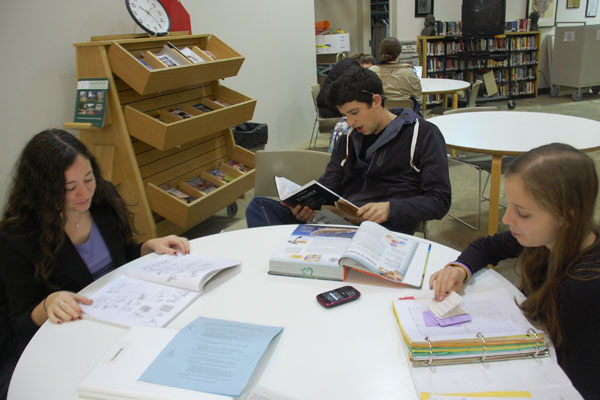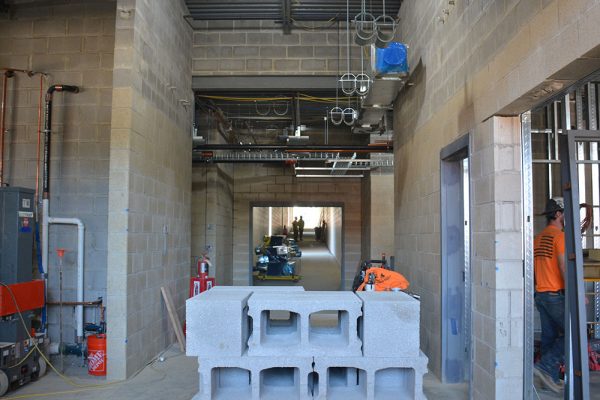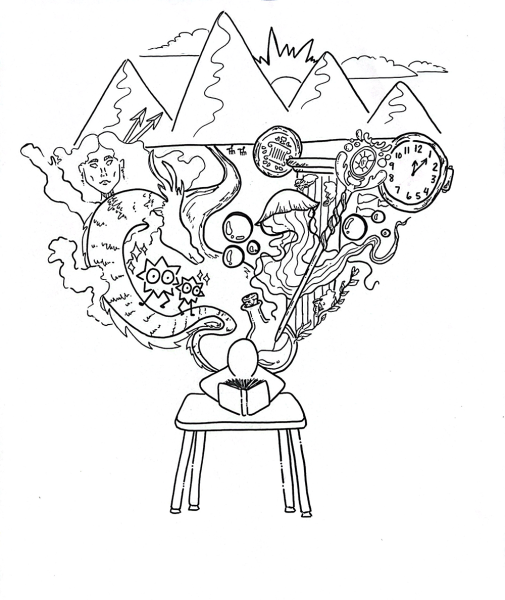Midterm Madness Intensified This Year

Photo from Beachcomber archives
Ask almost any high school student what their least favorite parts of high school are, and chances are the list goes something like this: the ACT, cafeteria food and semester exams.
“Midterms are very stressful due to the sheer amount of material we need to review, while, in many cases, still learning new material up until the day before the exam,” senior Jiwoo Kim said.
More teachers taught new material up until the day before the test this year, which seems to have been caused by the move of midterms to before winter break, leading to a time crunch.
This was worsened by an unexpected snow day on Dec. 15, depriving classes of an additional 50 minutes of critical instructional time.
Despite the challenges, Kim feels that it was a good idea to move midterms to before break.
“Let’s be honest,” he said. “During winter break, you go on vacation, you spend time with your family, you are a lot less likely to spend time studying…I feel like if finals are after break, it is impossible to remember some of the material from the beginning of the year due to the amount of time that has passed.”
Senior Harsajan Gill is unhappy with the change, and feels it did not allow teachers to ease up and give students sufficient time to study.
“Honestly, I wish exams were still after break,” he said. “I still had a lot of tests and homework during the time leading up to exams, which did not leave me with enough time to study and left me to cram a couple days before midterms.”
Both Kim and Gill think that in order to prevent cramming and insufficient study time, teachers need to make more time in class to review.
“Ideally, we should have a week of class before midterms to look at old tests, quizzes and assignments,” Kim said.
“I only had one class in which we actually had time to review,” Gill said. “I was taking tests up until the day before finals, which didn’t leave me enough time to study.”
During finals week, the library was more crowded than usual, with students focused on test preparation.
Sophomore Thomas Byrne was reviewing for his Spanish exam when asked about his study methods.
“[I use] sort of a chunky style with short intervals of rest in between,” he said.
while some students are found cramming minutes before the test, Byrne starts studying weeks before.
“I feel like there should be no stress when the test is in your hand, because if you studied adequately before you realize there’s nothing you can do.”
Both common sense and science back up the assertion that spreading out your studying over time, instead of cramming, results in an stronger recall and understanding of information.
This can be explained by a concept that psychologists call “the spacing effect”, which says that by spacing out your studying and practice, information and concepts are better retained.
This is something that both students and teachers have known for a long time, which serves as a reminder that the only way to really learn information and minimize the overall amount of studying needed is to simply study consistently throughout the semester.

Alex Cala has been writing for The Beachcomber since the fall of 2014, when he was a sophomore. He became the opinion editor the following year. Alex tends...









